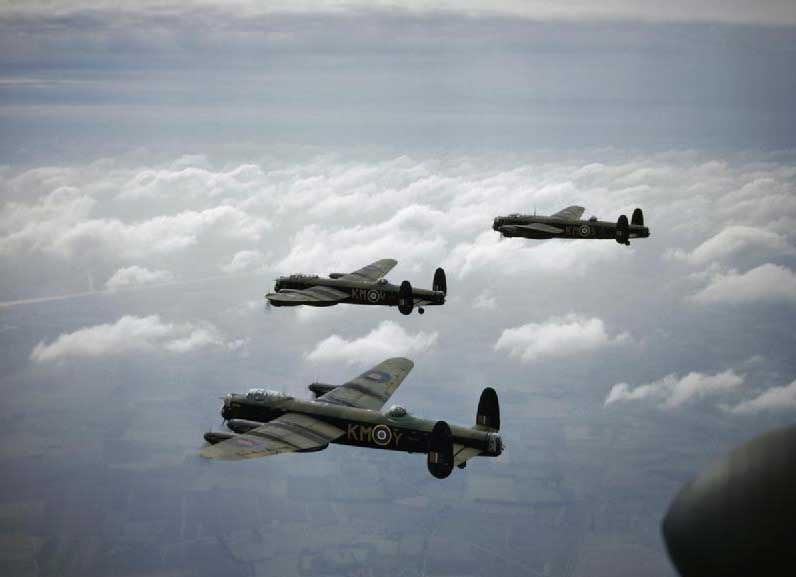May 1942 One Thousand Plane Raid on Cologne

Lncaster Bombers in 1942
On May 30th, the British launched a 1,000-plane night raid on Cologne. It was in fact a raid of just under 900 planes. The goal of the raid was destroy the ability of Cologne to participate in the war effort. The raid started over 2,000 fires and killed 486 people. The long term effect of the raid however, was minimal, and despite continued raids that went on for the rest of the war, the Germans continued to produce ever more war materials.
Following the Luftwaffe’s bombing of London, the first bombing of German cities occurred. Prime Minister Churchill demanded that the Royal Air Force retaliate with a raid on Berlin. As the Blitz campaign persisted, the British responded with raids against German cities.
The British bombers who operated during the night soon realized that only one bomb in five struck within five miles of its target. In February 1942, the order was changed to target cities rather than specific ones. Recognizing that the most effective method of destroying a city was through fire, most of the bombers began dropping incendiary bombs.
One week after the new order was implemented, Sir Arthur Harris was appointed as the head of Bomber Command. Harris believed that strategic bombing could be decisive in the outcome of the war. He argued that bombing cities would lead to the depletion of available workers for industry, damage morale, and potentially effect regime change.
Harris advocated for the massive bombing of individual cities. The first such raid, which he dubbed the “1,000-plane raid on Cologne,” was actually only a little under 900 planes. The raid itself resulted in over 2,000 fires and caused the deaths of 486 people. Raids continued on other German cities, such as Hamburg and Berlin. However, despite General Harrison’s claim in 1943 that he would bring about the collapse of Nazi Germany by May 1944, all of the raids had only a limited impact. German industrial output was disrupted but never significantly decreased, and while the raids undoubtedly affected German morale, they did not create any substantial pressure on the regime.
The Americans opted to bomb during the day, utilizing improved bombing aiming technology. However, their daylight raids proved to be highly costly until their bombers could receive fighter escort. After the war, an analysis of the overall effectiveness of the bombing revealed that it was extremely limited at best.
 >
>